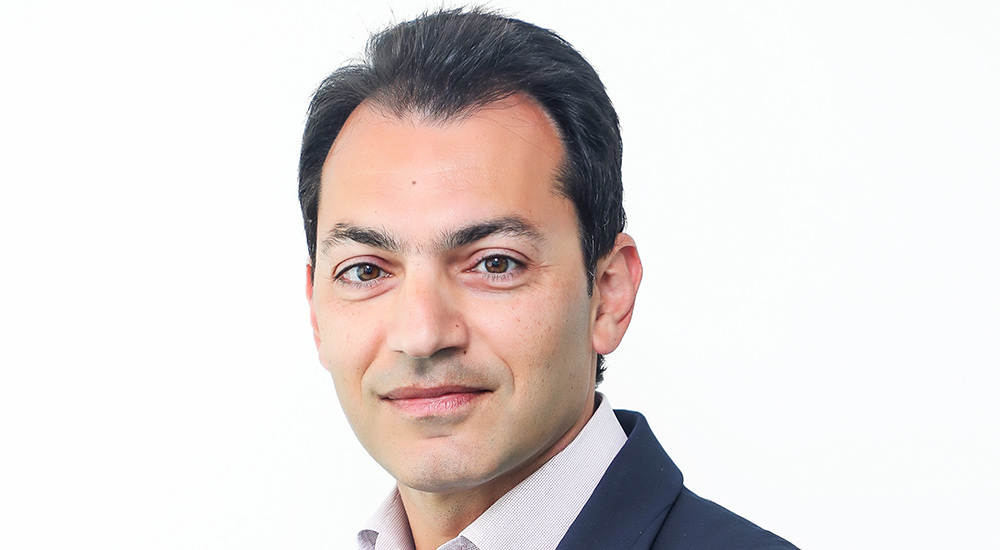Governments are embracing technologies to transform services and impact lives

Digitalisation is no longer a choice, it has become critical across industries and most importantly at the helm – the government. While transformation can lead to a nation becoming more productive and efficient, government organisations at any given point in time are in a certain phase of transformation; the phase which will continue to evolve to embrace newer technologies to fulfill their national commitments.
The future is not just about embracing new technologies; it is how these new technologies are impacting everyday lives, thereby creating increased levels of efficiencies and productivity and transforming public services.
Cross-collaboration amongst government entities through digitalisation directly impacts and boosts end user services making them more seamless, effective and efficient. This enables entities to share data, resources and information to better serve larger communities and residents. The saved time allows for more productivity allowing free time to build on future-focused innovative thoughts and programs.
A city that is constantly innovating automatically transforms into a city that encourages, builds awareness and educates its residents, citizens, visitors, on modern technologies and the impact of changing policies in everyday lives, thereby encouraging individuals to embrace new technologies. The government plays a vital role in changing mindsets when it comes to the adoption of new technologies.
Through automation of data collection and other processes, workflows and end user services are quicker and far more efficient. Automation helps in delivering consistent end user experiences effectively interconnecting government departments with the highest levels of security by eliminating the handling of physical documents by different departments.
Any cost savings that are a result of automation are driven down to the consumer level in lower service prices, encouraging consistent demand, output and thereby an increase in employment across the country. This automatically results in increased employee benefits and packages in the long run.
Role model
Certain initiatives led by Smart Dubai under its 2021 vision that are in the works such as the Dubai paperless strategy aim to increase time saving efficiencies while reducing manual paperwork and resulting in more time on hand for officials within different departments to spur innovative ideas that further elevate the nation’s innovation agenda.
The Smart Dubai-Software AG partnership, is in line with Smart Dubai’s paperless strategy of 2021. While the larger objective is going paperless, the new offering will in the process interconnect Dubai wide government entities and key private sector systems and processes to simplify processes for citizens, residents, tourists, students, investors and business visitors in Dubai. After 2021, government entities will stop issuing and requesting paper documents.
Another comprehensive initiative is Abu Dhabi Municipality’s Smart Cities and Artificial Intelligence project – the Zayed Smart City project which was all about digitally transforming the environmental, social and financial aspects of urban city life.
The Zayed Smart City Project led key components across the city to be connected in different use-cases that included air-quality monitoring, asset tracking and logistics monitoring, structural health monitoring, water metering, palm tree weevil detection, street lighting, smart parking, waste management, water storage tank monitoring and swimming pool monitoring.
The Georgia Technology Authority manages the delivery of IT infrastructure services to 85 executive branch agencies and managed network services of 1,400 state and local government entities in the United States.
In line with its vision of creating a transparent, integrated enterprise for citizens, the strategy was deployed across all aspects of the business to expand data-sharing between the federal, state, county and local agencies for eased interoperability, streamlined services, and real-time information exchanges. Connectivity was consolidated across 20 state agencies, 38 touch points, 300+ processes and 700,000+ data exchanges a day.
Today car accidents are reported through the Dubai Police app, issuance of good conduct certificates are online and several other public services are now digital and experienced by residents and citizens.
Technologies
In UAE in particular new technologies such as artificial intelligence, Internet of Things, blockchain and the comprehensive use of data analysis are rapidly gaining momentum into the public service offerings for improved efficiencies, seamless experiences and qualitative improvements.
Some of the key technologies and platforms include enterprise architecture, cloud planning and management, government strategy synchronisation, strategy operationalisation, technology road mapping, application portfolio management, technology portfolio management, data capture and maintenance, technology project planning, Smart-data driven analytics, artificial intelligence.
Challenge
Organisations need to do away with digital silos for successful digital transformations. With insufficient collaboration and integration in project management, it increases the possibilities for a digital transformation initiative to fail and therefore needs to be addressed.
The rise and adoption of future technologies is often followed by a rise in new regulations to govern the use and applications of these technologies. Speaking of the imminent paperless strategy, digital signatures and paperless contracts will have revised regulations in place.
The banking sector is another rapidly digitalising industry in which new guidelines continue to evolve for the rapidly developing infrastructure to be able to embed the technologies and systems into the organisation and the larger ecosystem.
Key takeaways
- The Smart Dubai-Software AG partnership, is in line with Smart Dubai’s paperless strategy of 2021.
- Cross-collaboration amongst government entities through digitalisation directly impacts and boosts end user services.
- In UAE, artificial intelligence, Internet of Things, blockchain, data analysis is rapidly gaining momentum.
By Rami Kichli, Vice-President, Software AG, Gulf and Levant.





